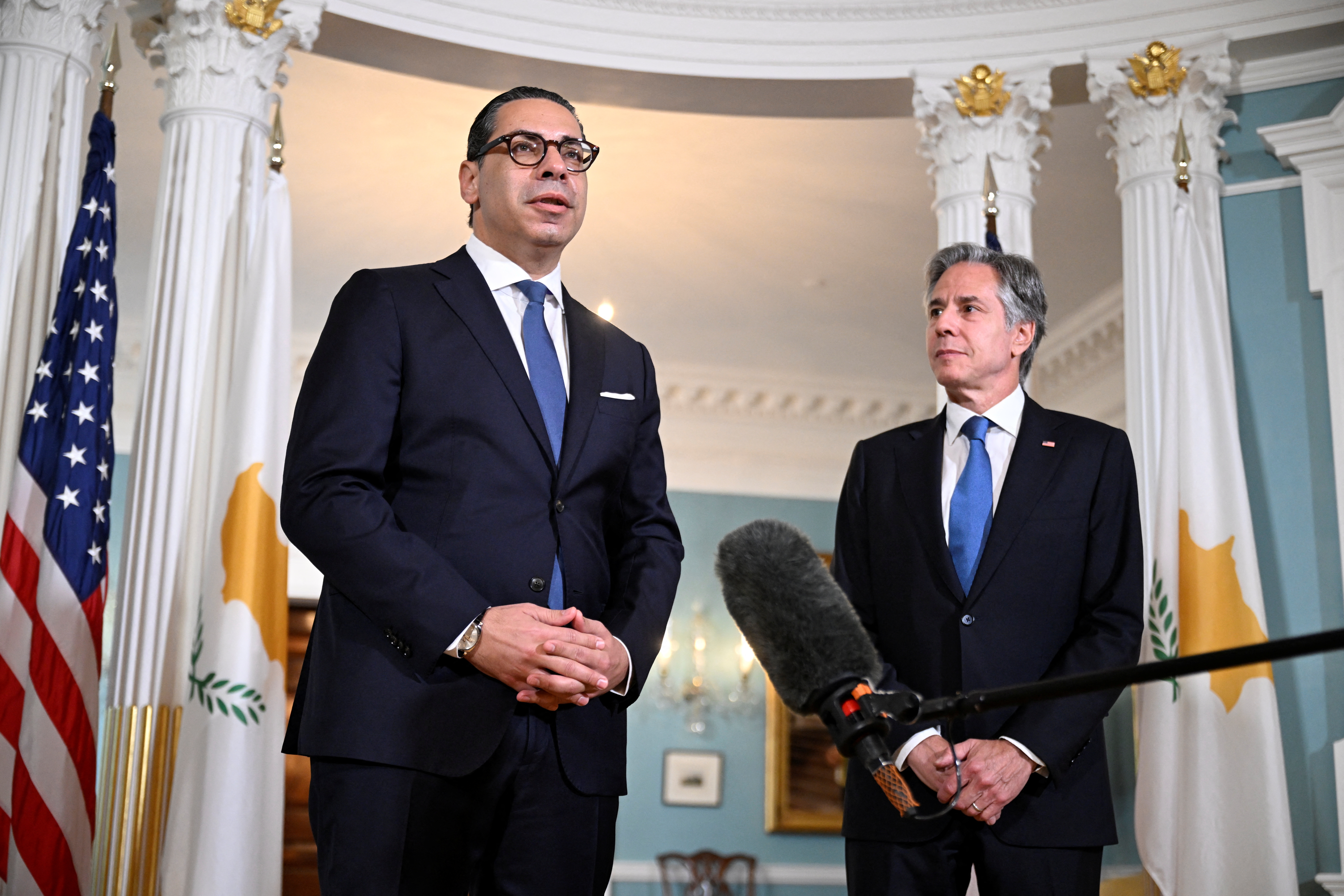Cyprus is now viewed by the United States as a trustworthy and reliable state worthy of strategic partnership, something which took years of intensive efforts, Foreign Minister Constantinos Kombos said on Wednesday.
The minister also brushed off concerns about the country’s intensified alignment with the US.
The minister’s statements came in the wake of opposition party Akel demanding a full accounting of the development’s fine print, while others hailed the newly cemented agreement as a political master stroke.
“The Christodoulides administration needs to answer questions which Akel posed months ago. We want to know what military operations [were] carried out over the past eight months [involving Cyprus], in the time during which Israel carried out a genocide against the Palestinians,” Akel said on Tuesday.
Cyprus’ “subservience” to the US does not constitute a geopolitical upgrade but on the contrary raised the spectre of “turning the island into a staging point for warfare, entailing immense risks for our people,” the party claimed.
Speaking to state broadcaster CyBC, Kombos first reiterated that the newly defined and formalized relationship with the US would bring benefits in a wide range of sectors for Cyprus, including energy and the economy.
This appraisal was welcomed by the Cyprus chamber of commerce (Keve) which in its statements said it anticipated, among other advantages, an inflow of US investment and increased exports to that country. Conservative party Disy and centrist parties Diko and Dipa also took the line that the development was a harbinger of stability and recognition for the Republic.
As well as the socio-economic benefits to be gained, the US-Cyprus agreement opened up new possibilities of ending the island’s division with US support, Kombos said
“It is not a matter of the USA putting pressure,” the minister explained, but more a matter of “hitting on the solutions to break the deadlock.”
There is a keen “mood” at the moment among US officials to support the Republic in this task, the minister noted.
He once again brought up the Amalthea initiative, as well as previous successful rescue missions, such as the evacuation of US and other foreign nationals from Sudan and Israel, as catalytic for Cyprus’ boost in credibility within US circles.
As well as this, Cyprus’s faithful implementation of EU policy towards Russia and moves against corruption following that country’s invasion of the Ukraine-something that had not been viewed as a given-has reassured Washington, he said.
Questioned on what precisely the US stands to gain from the intensified strategic partnership, Kombos pointed out that the Middle East is a region frequently in conflict and therefore the recent humanitarian and rescue missions were not just a windfall opportunity for the US to utilise the island as an operational base.
“The main aim of the Amalthea [corridor] was never just humanitarian, it was looking to the ‘next day’ reconstruction in Gaza, following the brokering of a peace deal,” Kombos said, indicating that its intent from the start had been for longer-term collaboration.
As to how other states, such as Russia or the UK (which has bases on the island) would take the intensified alignment, Kombos noted that relations with the former had become by necessity “less warm” due to the Ukraine invasion.
The minister brushed off concerns that identification with US interests would be to the country’s detriment in the region, saying that there was no question of Cyprus becoming anyone’s “satellite state”.
A fact sheet on the US State Department website notes that cooperation between the two states is at a historic high.
“The United States views the Republic of Cyprus (ROC) as an important partner for regional stability, security, and prosperity, and works closely with the ROC to advance shared security priorities in the Eastern Mediterranean region,” it reads.
In late 2018 the US signed a statement of intent on bilateral security cooperation. This was followed in December 2019 by the signing of the Eastern Mediterranean Security and Energy Partnership Act, which highlighted US security interests in the Eastern Mediterranean region.
Since then, the two countries have cooperated on measures for counterterrorism, non-proliferation of nuclear weapons, maritime security, search and rescue, counter-trafficking, cybersecurity, disaster and emergency response, and non-combatant evacuation.
Among the successes lauded on the US government website are joint military exercises; port visits by US naval vessels; senior-level visits to Cyprus by US military leadership; the groundbreaking Cyclops (Cyprus centre for land, open-sea, and port security) regional training centre; and the waiving of an arms embargo to allow for direct sale of non-lethal defence articles to and from Cyprus.






Click here to change your cookie preferences